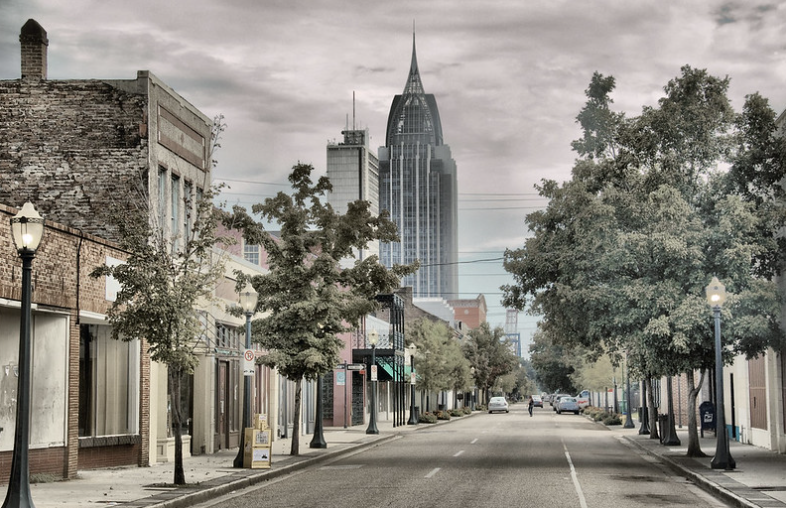Mobile was pretty. The sunset was peach. The Dolly Parton Bridge at sundown will move you. That’s the bridge’s nickname. They call it that because of the dual arches which resemble bosomage.
I was in town to make a speech for some businessmen and businesswomen involved in a lucrative field, such as distribution, insurance, auto sales, the federal government, etc.
My speech went good. And by “good” I mean they didn’t throw expired vegetables at me. The vegetables were ripe this time.
Afterward, I went out for a sandwich and—God willing—a malted beverage. I went to T.P. Crockmiers, one of the oldest bars in Alabama.
I had company. She sat beside me. An elderly woman. White hair. Pink shoes. She was wearing pearls. She said she was celebrating something.
“What’re we celebrating?” I asked.
She raised a glass. “My husband’s life.”
“When did he pass?”
“Few years ago. On this day. He was a veteran.”
“Vietnam?”
“Lord, no. How young do you think I am? He was in Italy when troops landed in Normandy. Don’t get fresh with me, son.”
I looked at her. I wanted to ask how old she was, but my mother told me never to ask such a thing if I wanted to maintain an oxygen habit.
She was 95.
“I wish you’d known Mobile back then,” she said. “This town was heaven. It was so alive. So busy. Everyone was leaving their farms to move here. Seemed like everyone in the U.S. wanted to be in Mobile, to build ships.”
She’s not wrong. During the War, Mobile became the second biggest city in Alabama. People migrated from all over the Lower Forty-Eight.
They were living in tents in vacant lots. Old houses became boarding houses. One shipyard worker would awake early for his shift, and another would come behind him and sleep in his bed.
In ‘45 her husband came home after war. She had no idea he was coming.
A taxi pulled to her curb. She was vacuuming. She saw him through the window. She burst outside. They embraced on the sidewalk. He held her by her tiny waist and lifted her into the air.
“I’m never leaving you again,” he said.
And he didn’t. They had a good life. He went to school on the GI bill. Studied engineering. They had a bunch of kids. They bought a DeSoto. He took her dancing a lot. They Jitterbugged. They ate out every night.
“Mobile had good music in those days. You could go anywhere and listen to a band swing.”
But she said it was his faith that made him special.
“When my husband got cancer, he laughed. He said, ‘God hasn’t abandoned me. This ain’t nothing, sweetie. I’ve seen a lot worse things than cancer that can happen to a man.’”
He was cheerful until he died. Right up until his last breath. His last words were, “Darlin’, I hope they have booze in heaven.”
Whereupon they both laughed through tears. She held his hand as he passed. She held that hand for hours, until the mortician said to let go.
“I never dated anyone else,” she said. “Not since age 15. I never needed to. He was my hero, and always will be.”
They’re doing okay in Mobile.
Sean Dietrich is a columnist and novelist known for his commentary on life in the American South. He has authored nine books and is the creator of the “Sean of the South” blog and podcast. The views and opinions expressed here are those of the author and do not necessarily reflect the policy or position of 1819 News. To comment, please send an email with your name and contact information to Commentary@1819News.com.
Don’t miss out! Subscribe to our newsletter and get our top stories every weekday morning.










